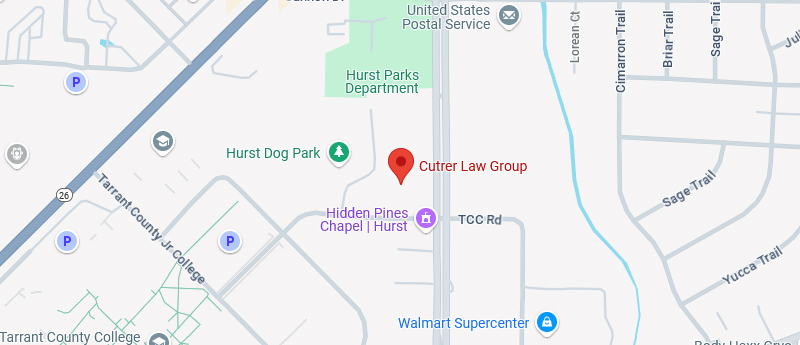How Does Probate Work?
Probate is a crucial process that helps ensure a decedent’s wishes are honored during the distribution of their assets and liabilities. Additionally, the process ensures that all legal nuances are handled correctly to avoid complexities that could lead to costly lawsuits. A family law attorney in Bedford explains that the process generally entails the following steps:
- Appointment of a personal representative or executor
- Notification of beneficiaries and creditors
- Inventory and appraisal of the estate
- Payment of debts and taxes
- Distribution of assets
- Financial accounting and estate closure
However, various issues and challenges often arise during probate, causing delays. Knowing how to navigate the system is crucial to help you get the most out of the process while maximizing estate value.
What Are Some Common Challenges That Cause Delays in Probate?
Probate should facilitate the smooth transfer of an estate to the beneficiaries, but that doesn’t always happen. An experienced probate lawyer in Bedford says that it is crucial to prepare for challenges that may arise. Common issues that individuals encounter are:
- Costly court and legal expenses: Probate attracts legal and court fees that may accumulate to a sizeable sum, especially if the estate has high-value or complex assets. Disputes among the beneficiaries can also increase probate expenses, significantly reducing the estate’s value.
- Complex estate appraisal: It can be challenging to determine the value of certain assets such as antiques, rare collectibles, asses with sentimental value, and specific business interests.
- Publicity: Probate proceedings are a public record, meaning anyone can access information about the deceased estate, wealth, debts, and family.
- Lengthy proceedings: Probate can last several months or years. Some factors that complicate the process are the size of the estate, the assets involved, outstanding debts, and disputes from heirs, such as contested Wills.
- Tax factors: An estate may be subject to various taxes such as estate, inheritance, and income tax deductions, reducing its value and affecting the amount the heirs can receive.
- Creditor disagreements: Sometimes, creditors may dispute the amount they are allocated, especially if the estate’s value is insufficient to cover the deceased’s debts.
- Lost documents: Missing or incomplete documents related to the assets in an estate can delay probate while efforts are made to locate them.
Knowing these issues beforehand can put you in a better position when planning your estate. With the help of a knowledgeable probate lawyer in Bedford, you can implement practical measures to reduce probate delays.
What Strategies Can Help Minimize Probate Delays?
Settling assets and debts through probate is complex, and the process calls for meticulous attention to detail and a deep understanding of how it works. With the input of a knowledgeable Bedford probate attorney, you can leverage the following strategies when creating an estate plan to minimize delays while maximizing value for your beneficiaries:
Joint Tenancy
Consider retitling your assets in joint tenancy to protect them from probate. Legally, assets owned by more than one person are not subject to probate after the demise of one of the owners. Instead, the assets automatically transfer to the joint owner, whether financial or real estate assets.
However, the strategy has some challenges and risks. For example, the assets in joint tenancy could be subject to claims against the joint owner, creating a need for legal action. Consult extensively with a skilled probate attorney in Bedford to evaluate whether retitling your assets suits your situation.
Use Non-Probate Transfers
You can reduce the likelihood of your estate being subjected to probate by utilizing non-probate transfers or beneficiary designations. The following are some types of assets and financial instruments that bypass probate and transfer directly to the designated beneficiaries:
- Bank accounts with transfer on death (TOD) or payable on death (POD) designations
- Retirement accounts, IRAs, and 401(k)s
- Insurance policies
Create a Clear Will
An ambiguous or contested Will is one of the reasons that your estate might have to go through probate. A Will open to interpretation can create loopholes in estate distribution, making it necessary for your heirs to seek the probate court’s intervention. A clearly written Will has the following crucial elements:
- Identifies all assets: Create a detailed asset list to expedite asset identification and valuation
- Addresses exceptional cases: Depending on your family dynamics, you can address special circumstances to minimize the need for court intervention
- Minimizes legal complexities: Provide clear intentions in asset distribution to reduce the chances of legal challenges and save time and resources.
A skilled family law attorney in Bedford can work with you to help you draft an enforceable Will. They can review it for mistakes to increase the likelihood that your wishes will be carried out as you intended, saving loved ones from probate challenges.
An Experienced Family Attorney Helping You Minimize Probate Delays
Probate can be complex, emotionally draining, and costly, but with careful planning, you can minimize the delays while maximizing estate value. Consult an experienced family law attorney in Bedford for legal guidance on effective estate planning strategies for the most favorable outcome.
The Cutrer Law Group is a family law firm in Texas. We have a dedicated probate lawyer who can help with your estate planning needs. A well-crafted estate plan can protect your loved ones from probate and ensure they get the most value from your estate through inheritance. Call us at 817-854-1651 for a case assessment.





 1845 Precinct Line Road
1845 Precinct Line Road info@akcfamilylaw.com
info@akcfamilylaw.com 817-854-1651
817-854-1651



